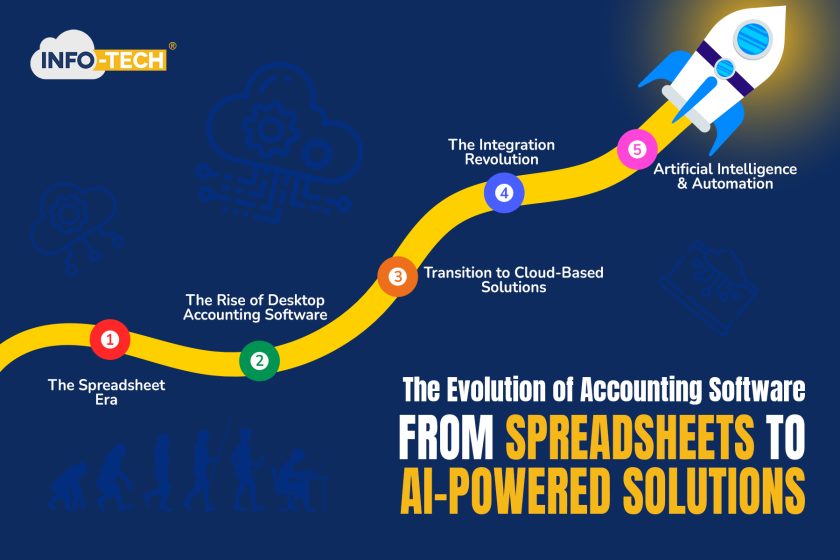In today’s fast-paced world, accounting software is a must-have for any business that wants to stay on top of its finances. It can help you track income and expenses, manage invoices, and generate reports. And with the latest advances in artificial intelligence, accounting software is becoming even more powerful and efficient. This blog explains the evolution of accounting software from Spreadsheets to AI-powered solutions.
Accounting software has a significant impact on modern business operations. It has made it easier for businesses to track their finances, manage their cash flow, and make better decisions. As a result, companies are more efficient and profitable.
But how does accounting come to be? What makes it the best software to use and trust with company data and numbers? Let’s look from the beginning.
The Spreadsheet Era
Accounting software starts as manual spreadsheets. This was a massive step from traditional paper ledgers, allowing businesses to do complex calculations electronically. Microsoft Excel led the way, providing a user-friendly platform for managing financial data. But while these spreadsheets were revolutionary at the time, they had limitations. They were difficult to scale, and errors often crept in due to manual data entry and calculations.
The Rise of Desktop Accounting Software
The next big thing was dedicated desktop accounting software. Companies like Info-Tech offered more specialised features that were tailored to accounting needs. These solutions made tasks like financial tracking, invoicing, and basic reporting easier. Businesses loved these software applications because they were much more accurate and efficient than manual methods. However, these desktop solutions still didn’t allow real-time collaboration or remote access. This type of accounting software is also called on-premises accounting software.
Transition to Cloud-Based Solutions
Cloud computing changed the game for accounting software. Cloud-based solutions fixed the problems of desktop software by making them accessible from anywhere and keeping data in sync in real time. Info-Tech lets businesses access their financial data from anywhere with an internet connection. The provider also handled software updates and maintenance, so companies didn’t have to worry about manually installing or updating anything.
The Integration Revolution
Businesses used to be okay with separate accounting tools, but now they want everything to be seamless. That’s why modern accounting software has gone through an integration revolution. Businesses now want comprehensive software ecosystems integrating accounting with essential business functions like customer relationship management (CRM), human resources, and inventory management. The result is a cohesive digital environment that streamlines processes, reduces data silos, and provides a holistic view of the business’s financial landscape.
Artificial Intelligence and Automation
Accounting software is getting more innovative and more automated. AI-powered tools are making it easier for businesses to manage their finances. They can automate data entry, invoice processing, and expense categorisation. Machine learning algorithms can learn from historical data and improve their accuracy over time, so businesses must spend less time on manual tasks. AI-driven analytics can also give companies more profound insights into their financial data, which can help them make better decisions.
These days, accounting software can automate all accounting processes, from calculating payrolls and orders to generating invoices and purchase orders. With integration into the payroll software,
Info-Tech’s Accounting Software Is Fully Equipped To Ease Your Processes, Reduce Errors Significantly, & Save Time.
Contact us at +603 6050 0333 or [email protected] for further inquiries about Info-Tech’s software.
